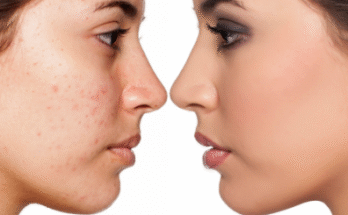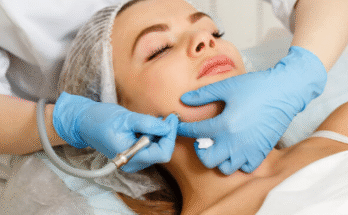Clear and healthy skin is something many people hope to achieve, but acne often gets in the way. Whether it shows up as occasional breakouts or more persistent blemishes, acne can affect both confidence and comfort. The good news is that with the right daily habits and consistent care, it is possible to reduce the risk of acne and support skin that looks and feels its best. Here are some gentle and effective best practices that can help you on the path to acne-free skin.
One of the most important steps is keeping the skin clean without overdoing it. Washing your face twice a day with a mild cleanser is enough for most people. Cleansing helps remove dirt, oil, and impurities that can clog pores. However, scrubbing too harshly or using strong soaps can actually irritate the skin and make acne worse. The goal is to strike a balance: clean, refreshed skin that is not stripped of its natural moisture.
Hydration plays a key role as well. When the skin is properly hydrated, it functions more effectively as a barrier against irritants and bacteria. Drinking enough water throughout the day and using a lightweight moisturizer can help maintain this balance. Even if your skin tends to be oily, moisturizing is still essential. Opting for non-comedogenic products, which are specifically designed not to clog pores, can make a big difference.
Sun protection is another practice that often gets overlooked in the fight against acne. While a little sun exposure might seem to dry out blemishes, too much sun can damage the skin and cause long-term issues. Using a gentle sunscreen designed for sensitive or acne-prone skin helps prevent irritation and keeps the skin safe from harmful UV rays. This is not only a preventative step for overall skin health but also supports a smoother, clearer appearance over time.
Stress management also plays a surprising role in skin health. High levels of stress can trigger the body to produce more hormones that stimulate oil glands, leading to breakouts. Finding ways to relax, whether through exercise, meditation, or simply taking breaks during the day, can help reduce these flare-ups. Prioritizing sleep is equally important, as rest gives the body time to repair and regulate itself, including the skin.
Diet and lifestyle choices matter as well. While acne is not caused by food alone, eating a balanced diet with plenty of fruits, vegetables, and whole grains supports overall wellness. Some people notice that processed foods, sugary drinks, or excessive dairy might influence their breakouts. Keeping track of how your skin reacts to different foods can be a helpful guide in creating habits that work for you. Pairing this with regular physical activity helps improve circulation, bringing more oxygen and nutrients to the skin.
Another best practice is avoiding the temptation to pick at pimples. It may seem like a quick fix, but squeezing or scratching can push bacteria deeper into the skin, cause scarring, or prolong the healing process. Allowing blemishes to heal naturally, with the support of gentle skincare products, results in healthier skin in the long run.
Consistency is the final and perhaps most important practice. Good skin does not happen overnight, and it requires ongoing care. Establishing a simple routine that works for your skin type and sticking to it is far more effective than trying every new product or remedy. Patience, paired with steady habits, gives your skin the best chance to remain clear and healthy.
Achieving acne-free skin is about more than chasing quick fixes. It involves mindful choices, healthy routines, and gentle care that supports your skin day by day. By focusing on cleanliness, hydration, sun protection, stress management, nutrition, and consistency, you create the foundation for lasting skin health. Clearer skin often follows naturally when it is cared for with kindness and balance.

